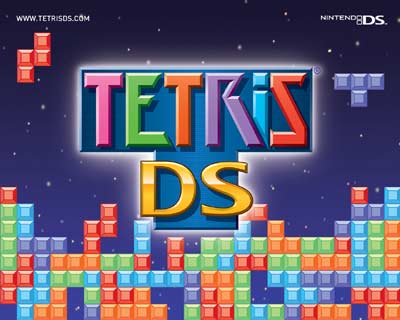经历过灾难的人往往会出现一些精神问题,比如:常常不由自主地回想起当时的可怕场面。一项新的研究显示,家喻户晓的“俄罗斯方块”游戏或许能帮上忙!因为这种游戏的画面会与灾难画面竞争大脑资源,从而抑制创伤所带来的影响。看来,除了娱乐,“俄罗斯方块”没准儿日后真能派上心理治疗的用场呢!

By Sora Song
天心 选注
In a follow-up study to their original 2009 research, Oxford University scientists found that playing Tetris after a traumatic event may help prevent flashbacks, the intrusive and unwanted memories of trauma that are the hallmark of post-traumatic stress disorder. They also found that this protective effect may be unique to Tetris; when another computer game was tested, it made people’s flashbacks worse.
In the first of two experiments, researchers had 60 adults (aged 18 to 60) with no history of mental health problems watch a 21-minute film containing traumatic content, like fatal traffic accidents and bloody scenes of human surgery. Such unsettling images—here, a stand-in for real trauma—can be haunting enough to produce mild flashbacks after viewing. Thirty minutes after the film, participants were randomly assigned to three 10-minute tasks: playing Tetris, playing another computer game called Pub Quiz, or just sitting quietly.
During the 10-minute intervention, the researchers found that people in the Tetris group reported fewer flashbacks of images from the film than people in the Pub Quiz and do-nothing groups (there was no difference between the latter two).
Over the following week, the volunteers were also asked to keep a flashback diary, recording when and what memories from the film intruded their thoughts. As the researchers expected, people who played Tetris were significantly less likely to flash back to the movie than people in the no-task group. But more interesting: the volunteers who played Pub Quiz had significantly more flashbacks than either those who did nothing or played Tetris.
The authors theorize that engaging in a visual task like Tetris can be protective after a traumatic event because it interferes with the brain’s ability to lay down visual memories—the same harrowing images that could later return as flashbacks.
The study’s second experiment was essentially the same as the first, except researchers extended the time between the movie and the computer-game task to four hours. Again, Tetris appeared to shield participants from flashbacks during the following week, even though they played the game hours instead of minutes after the traumatic event.
The researchers suggest that if further research bears out their findings, Tetris, or a task like it, could be developed as a kind of “cognitive vaccine” against flashbacks. It could be used as an alternative to other early interventions such as drug treatment and counseling, neither of which has shown much benefit.
Vocabulary
Tetris 俄罗斯方块。它由俄罗斯人发明,是一款基于图像的电子游戏。俄罗斯方块的基本规则是移动、旋转和摆放游戏自动输出的各种方块,使之排列成完整的一行或多行并且消除得分;由于上手简单、老少皆宜,从而家喻户晓、风靡全世界
PTSD 创伤后应激障碍,是Post-Traumatic Stress Disorder的缩写,指突发性、威胁性或灾难性事件导致个体延迟出现和长期持续存在的精神障碍,其临床表现为再度体验
flashback (往事在记忆中的)突然重现
follow-up study 跟踪调查,后续调查
traumatic 〈口〉使人不快的,令人痛苦而难忘的。下文出现的trauma是其名词形式,意思是“(心理上、精神上的)创伤”
intrusive 侵入的,打扰的。下文出现的intrude是其动词形式,意思是“侵入,打扰”
hallmark 标志,特点
fatal 致命的
unsettling 使心绪不宁的,使人不安的
stand-in 代替物
haunting 不易忘怀的,萦绕于心的
mild 轻微的,不严重的
randomly 随机地,任意选取地
assign 分配,指派
Pub Quiz 一种基于文字的解密智力游戏
intervention 介入,干预
theorize 作理论推定(或推测)
engage in 参与,从事
lay down 储存
harrowing 令人痛苦的
extend 延长
shield 保护,保卫
bear out 证明,证实
cognitive 认知的
vaccine 疫苗。这里是比喻用法
alternative 供替代的选择
counseling (对个人、社会以及心理等问题的)咨询,咨询服务
(来源:英语学习杂志)